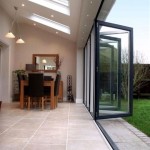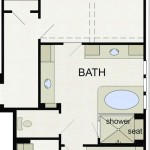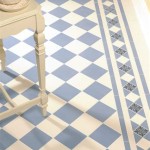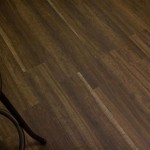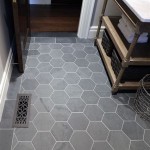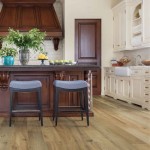Floor To Ceiling Glass Door: A Comprehensive Guide
Floor-to-ceiling glass doors have gained immense popularity in recent years for their ability to create an illusion of space, flood interiors with natural light, and offer breathtaking views. These doors seamlessly connect indoor and outdoor areas, bringing the outside in and blurring the boundaries between the two.
In this article, we will explore the world of floor-to-ceiling glass doors, delving into their benefits, types, materials, and installation considerations. Whether you're a homeowner planning a renovation or an architect seeking inspiration, this guide will provide you with comprehensive information to help you make informed decisions.
Benefits of Floor-to-Ceiling Glass Doors
The advantages of floor-to-ceiling glass doors extend beyond their aesthetic appeal. Here are some of their key benefits:
- Abundant Natural Light: These doors maximize natural light, brightening up interiors and reducing the need for artificial lighting.
- Enhanced Space: The floor-to-ceiling design creates an illusion of spaciousness, making rooms feel larger and more airy.
- Stunning Views: With an unobstructed view from floor to ceiling, these doors offer panoramic vistas of the surrounding environment.
- Indoor-Outdoor Connection: They seamlessly connect indoor and outdoor spaces, allowing for easy access to patios, gardens, or balconies.
- Energy Efficiency: Modern glass doors are energy-efficient, reducing heat loss and saving on utility bills.
- Architectural Statement: Floor-to-ceiling glass doors create a striking architectural statement, adding a touch of sophistication and grandeur to any building.
Types of Floor-to-Ceiling Glass Doors
Floor-to-ceiling glass doors come in a variety of types, each designed for specific functional and aesthetic needs:
- Sliding Doors: These doors slide open horizontally, providing a wide opening and maximizing space utilization.
- Folding Doors: Folding doors consist of multiple panels that fold together, allowing for a larger open area compared to sliding doors.
- French Doors: French doors are hinged doors that open outward, offering a classic and elegant touch.
- Pivot Doors: Pivot doors rotate on a central pivot point, providing a smooth and effortless opening mechanism.
- Glass Pocket Doors: These doors slide into the wall cavity when open, creating a seamless transition between spaces.
Materials for Floor-to-Ceiling Glass Doors
The choice of material for floor-to-ceiling glass doors depends on factors such as strength, durability, and aesthetics. Here are the most common materials used:
- Tempered Glass: Tempered glass is heat-treated to increase its strength and durability, making it ideal for large-scale glass doors.
- Laminated Glass: Laminated glass consists of two or more layers of glass bonded together with a durable interlayer, providing increased safety and soundproofing.
- Low-E Glass: Low-emissivity (Low-E) glass is coated with a special film that reflects heat, reducing energy loss and improving comfort levels.
- Tinted Glass: Tinted glass is treated with a colored film or dye to reduce sunlight and create privacy.
- Frosted Glass: Frosted glass is etched or sandblasted to create a semi-transparent surface, providing privacy while allowing light to pass through.
Installation Considerations for Floor-to-Ceiling Glass Doors
Proper installation is crucial for the longevity and functionality of floor-to-ceiling glass doors. Here are some key considerations:
- Structural Support: The building structure must be able to withstand the weight of the glass doors and their support system.
- Weatherproofing: The installation must ensure proper weatherproofing to prevent water infiltration and drafts.
- Security: Adequate security measures, such as locks and shatter-resistant glass, should be taken to protect against unauthorized entry.
- Accessibility: Floor-to-ceiling glass doors must comply with building codes and accessibility standards to ensure easy access for all users.
- Maintenance: Regular cleaning and maintenance are essential to keep the glass doors in optimal condition.
Conclusion
Floor-to-ceiling glass doors offer a multitude of benefits, from increased natural light and enhanced space to stunning views and a seamless connection to the outdoors. With careful consideration of the type, material, and installation requirements, these doors can transform your living space and elevate your architectural design.

Floor To Ceiling Glass Doors Slimline Frames Odc

Floor To Ceiling Glass Doors 13 Modern Design Ideas Avanti Systems

Floor To Ceiling Glass Doors Slimline Frames Odc

Floor To Ceiling Windows Doors The Cost Value

Floor To Ceiling Glass Doors 13 Modern Design Ideas Avanti Systems

Our Floor To Ceiling Sliding Glass Doors Featured In Riba Minimal Windows

Floor To Ceiling Windows Styles Costs Pros And Cons

Edge Hill Minimal Windows

Large Double Glazed Tempered Glass Floor To Ceiling Windows And Sliding Doors For Balcony Patio Main Entrance Door Stacking Made In Com

Floor To Ceiling Windows Authentic Window Design Elmsford Ny

